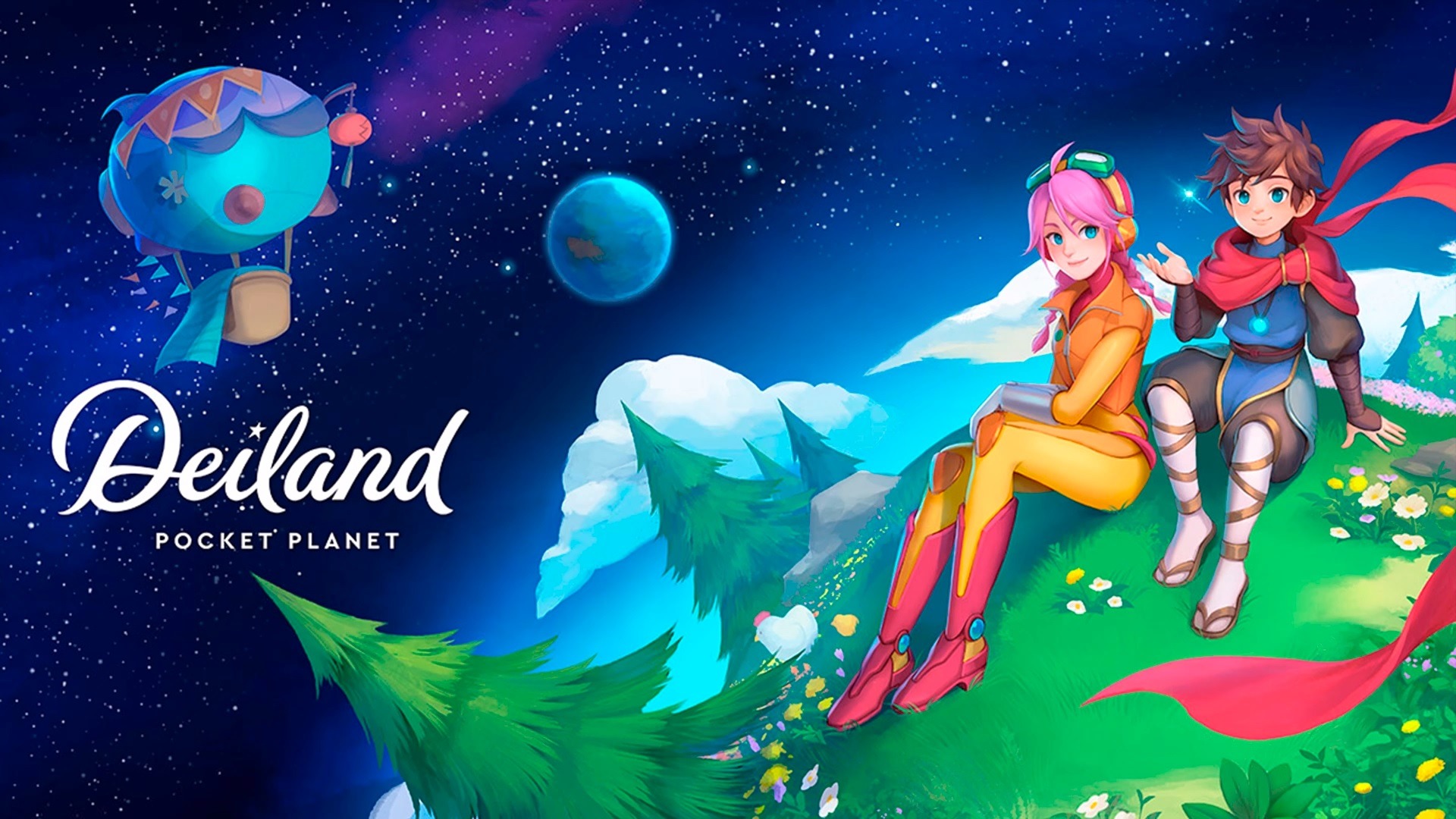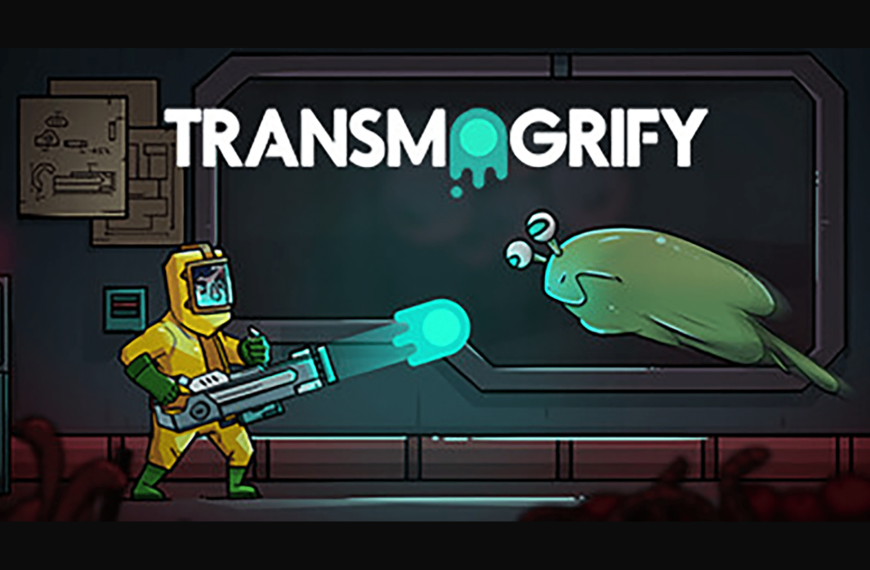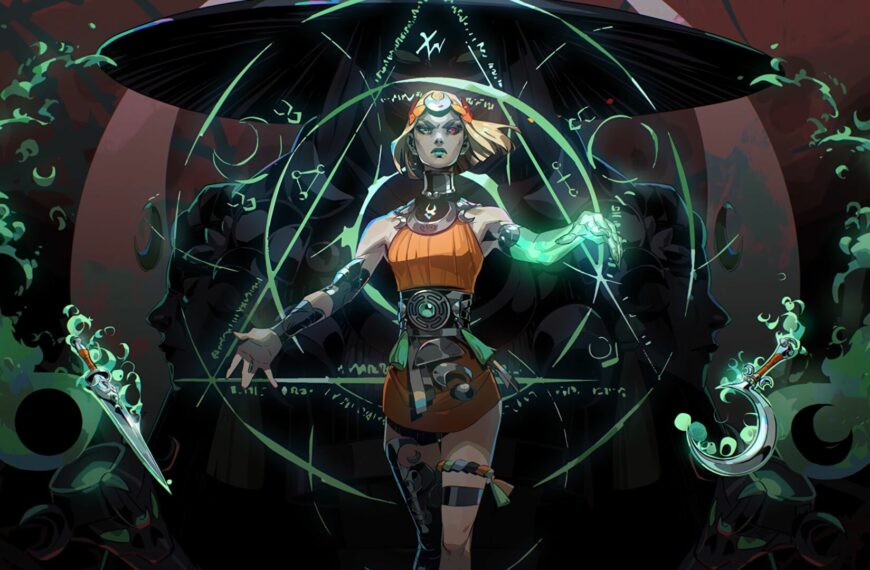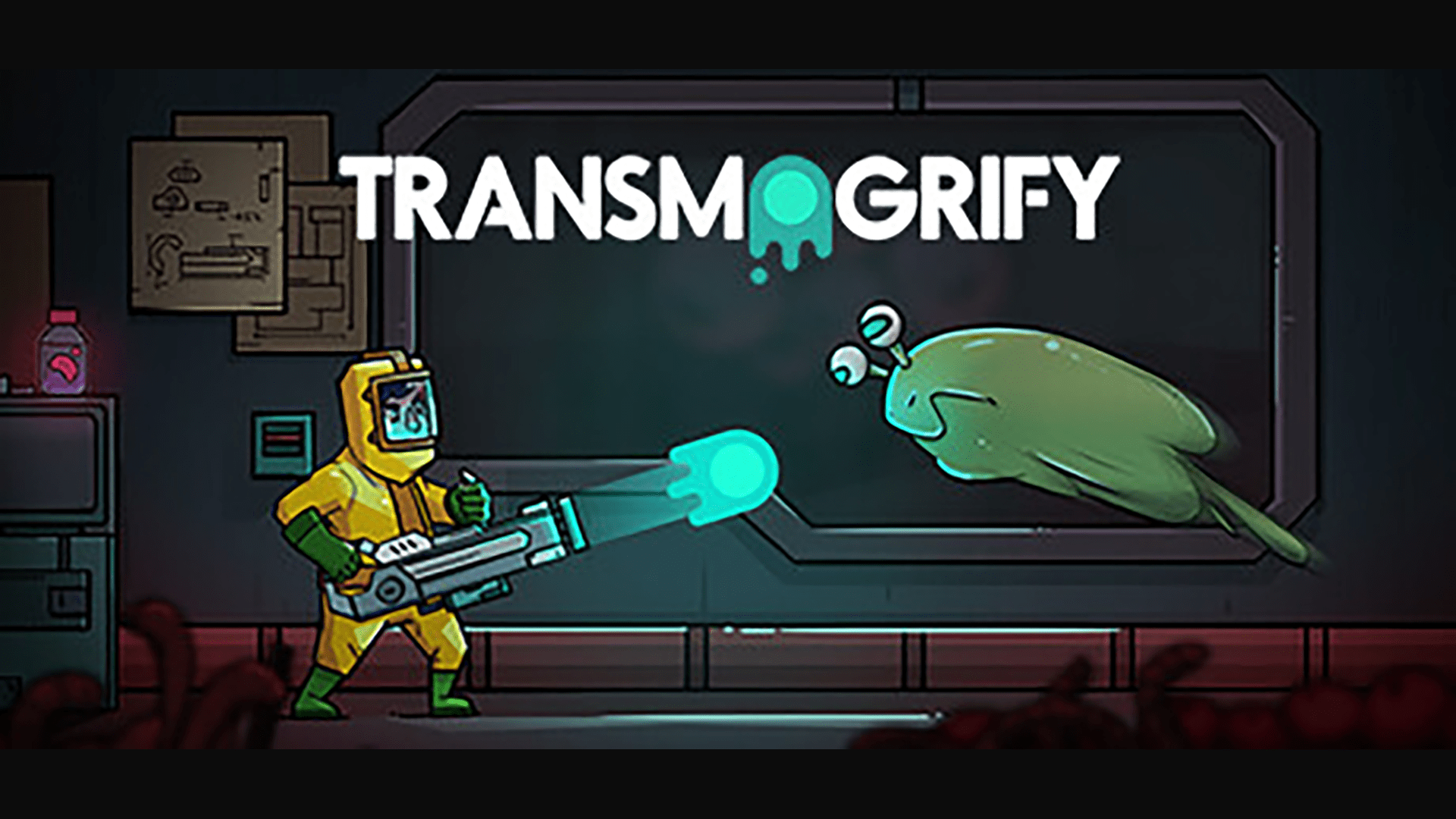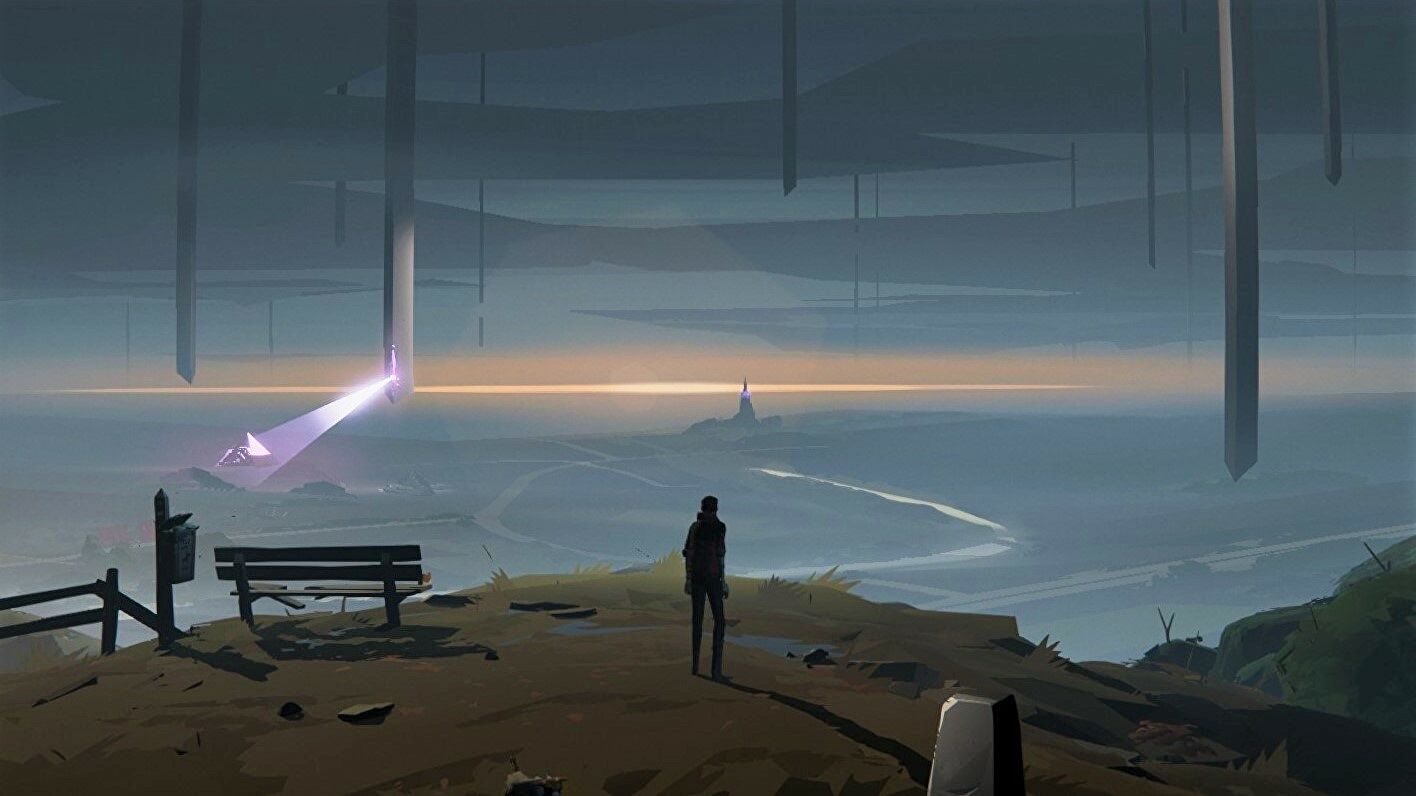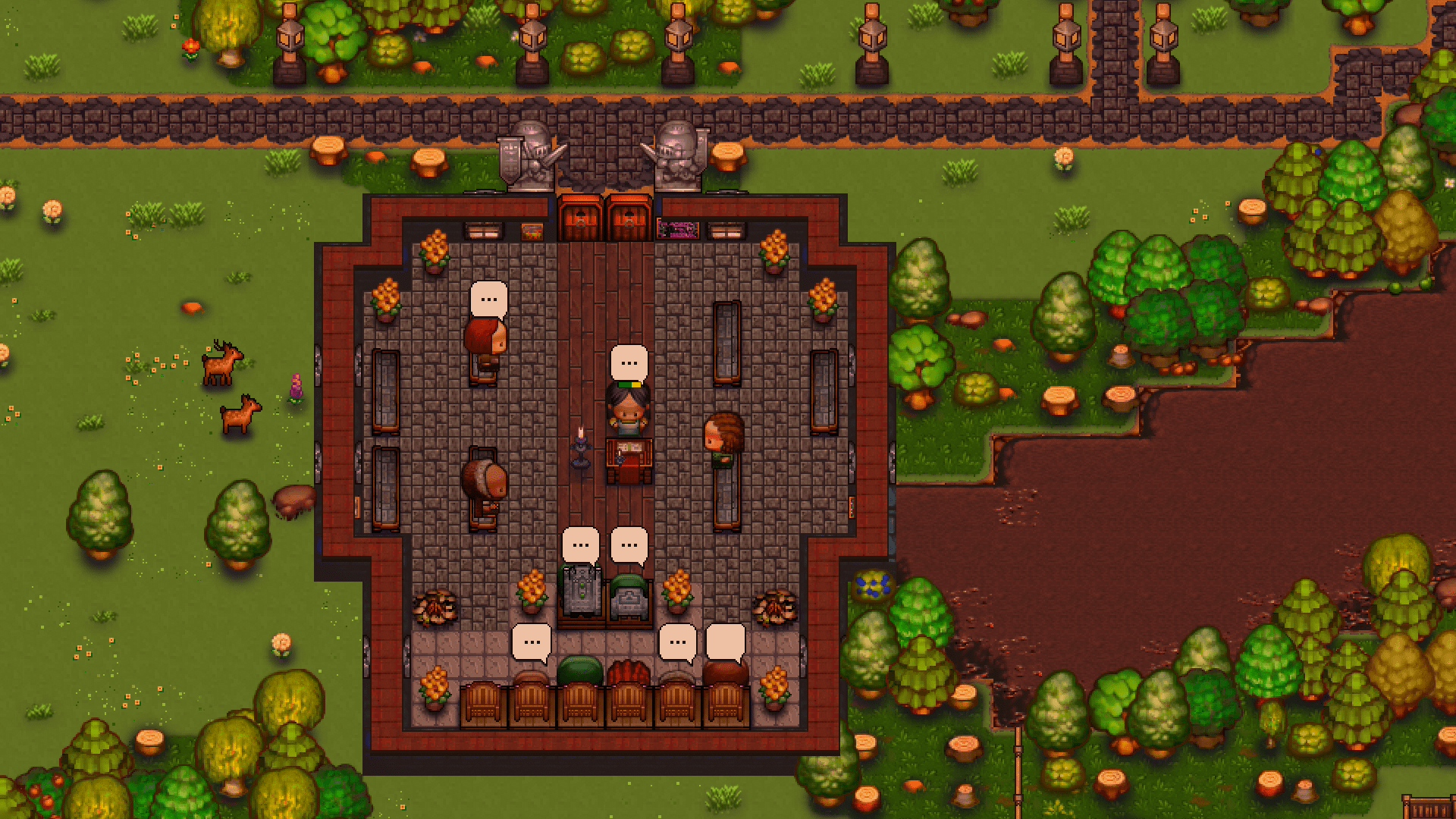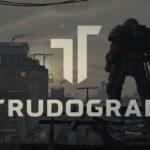And so once more I’ve returned to the miniscule planet of Deiland. I played the original Deiland in the first half of last year and was delighted by the twist on the usual crafting, cooking, foraging, and farming formula. You see, Deiland: Pocket Planet’s title isn’t just a joke about how this remake of the original game is also available on the Switch. It’s a reference to the fact that the titular planet is incredibly tiny. Though, really, what else would you expect from a game inspired by Antoine de Saint-Exupery’s The Little Prince?
As someone who recommended the original Deiland, (and indeed, recommends Deiland: Pocket Planet), I’ll be the first to admit that on a technical level, the original game was held together mostly with duct tape, pixie dust, and hope. So when I heard they were remaking the game, I was expecting Deiland again, but far more stable, with less bugs, and improvements to the dialogue and translation. And that’s basically what I got.
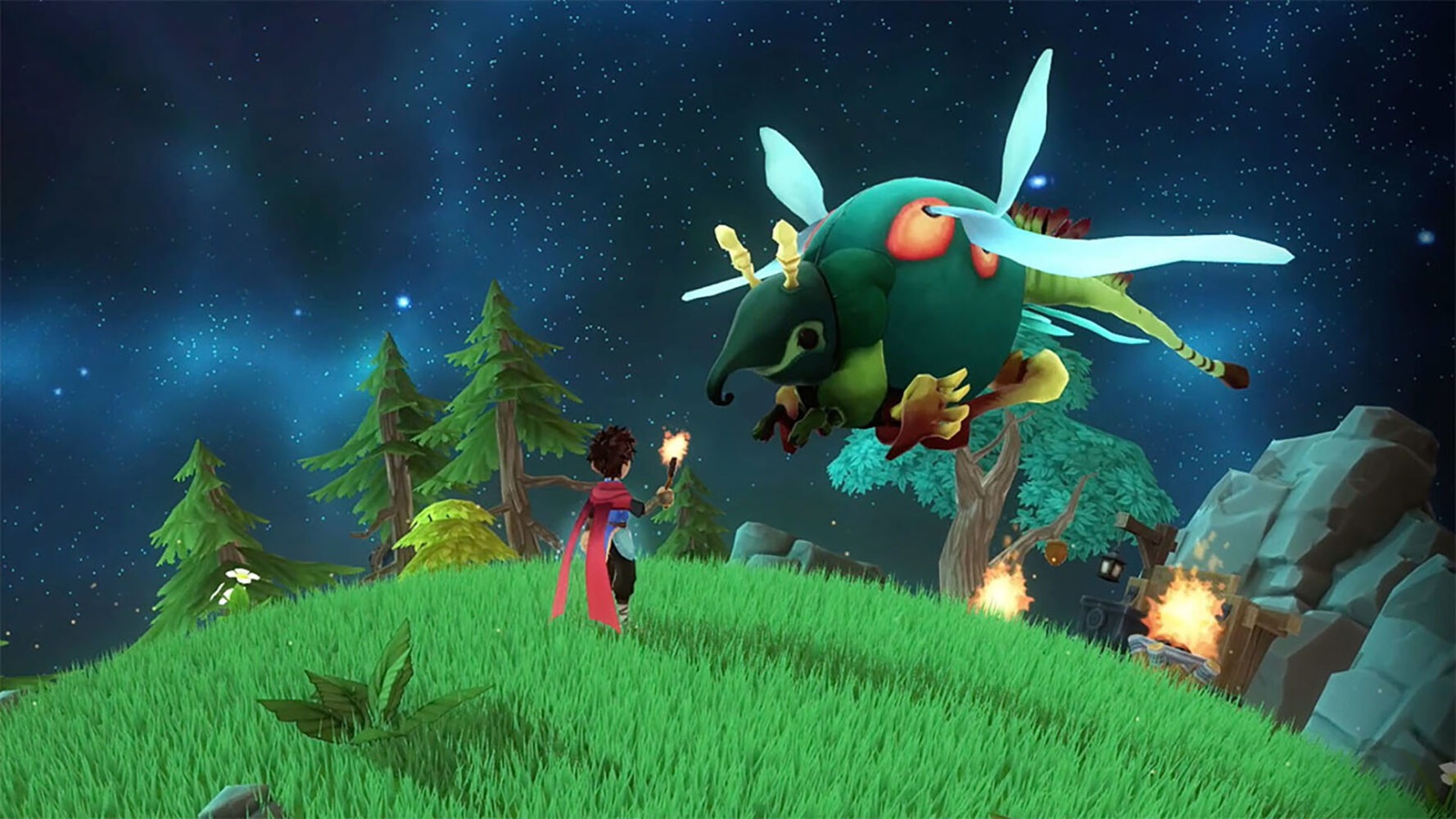
Working the Land
As I’ve stated, Deiland: Pocket Planet is a game about farming, gathering materials, crafting, you know the drill. You’ve seen it a hundred times. Deiland throws its hat into the ring with a few interesting variations on the formula. The biggest, ironically, being your tiny planet. Deiland has very little of anything at the start of the game. A few bushes of berries, two trees, a lake. Our protagonist, Arco, is even living out of a tent when he meets his first of many friends. So if you want Arco to achieve much, you’re going to have to put in some effort to get him a functional farm.
Like Summer in Mara, Deiland gives you limited, preset farmland to work. On one hand, this limits your ability to customize your planet to your heart’s content, and you can’t ever upgrade to get more farmland. On the other, you’re constantly forced to assess your goals and needs, and prioritize what crops you grow accordingly. Pocket Planet introduces changing seasons, something that wasn’t present in the original Deiland, or in Summer in Mara, though that last one probably isn’t surprising. And since crops can only be planted in season, you have to factor that into your time management as well. Do you plant the wheat so you can make bread for winter when you’ve got very little edible plants you can grow, or do you grow the tomatoes in case you need them for a quest?
Yes, Deiland has quests in it. I mentioned earlier that Arco makes friends over the course of the game. The way this works is that sometimes, someone will land their spaceship on Deiland. Arco can talk to them, and they’ll ask for his help with something or other. Usually they want him to craft something using the resources on Deiland, but there’s a number of other things they can want. From delivering messages to other visitors to asking you to make upgrades to your own equipment and facilities. There’s a fairly decent variety of things that need doing in this galaxy.
Also Read
Transmogrify PC Review: The Best Way To Defeat An Enemy
Transmogrify is a game with a strong central idea let down by a shoddy execution resulting in an experience that is…
Defy the Gods as a Witchy Moon Goddess in Hades 2
Supergiant announces Hades 2 for 2023 at the 2022 Game Awards. The sequel promises dark sorcery, witchery, and more frenetic roguelike…
Unfortunately, the game stumbles a little with this system. With two exceptions, you can’t actually call in any of your friends to visit you when you want them to. Which can leave you waiting for long periods to make progress on a specific quest. And since many quests are interconnected, a string of bad luck can put certain characters far behind the others in terms of progression. This usually happens when you need something dropped by monsters.
Unlike Summer in Mara, Deiland features combat. It’s also the weakest part of Deiland, sadly. Here’s how it works. Sometimes, monsters will randomly spawn on your tiny planet, signified by a change in music, Arco sensing their presence, and your HUD starts tracking their positions for you to find them. You then walk up to them and smack them upside the head with one of your tools. (Don’t worry, your tools can’t break.) Arco has a three-hit combo, ending in a strong finisher, but it’s basically useless. Hitting monsters knocks them away from you, meaning that you have to wait for them to step back into range before you can hit them again. Combat isn’t hard, not at all. Unless you get unlucky and poisoned or get ganged up on by a group at once, you’re very rarely in actual danger. And healing is incredibly easy. Food and proximity to campfires heals you right up. But Arco, rather sensibly if annoyingly, won’t do anything until he’s taken down all the monsters on Deiland.
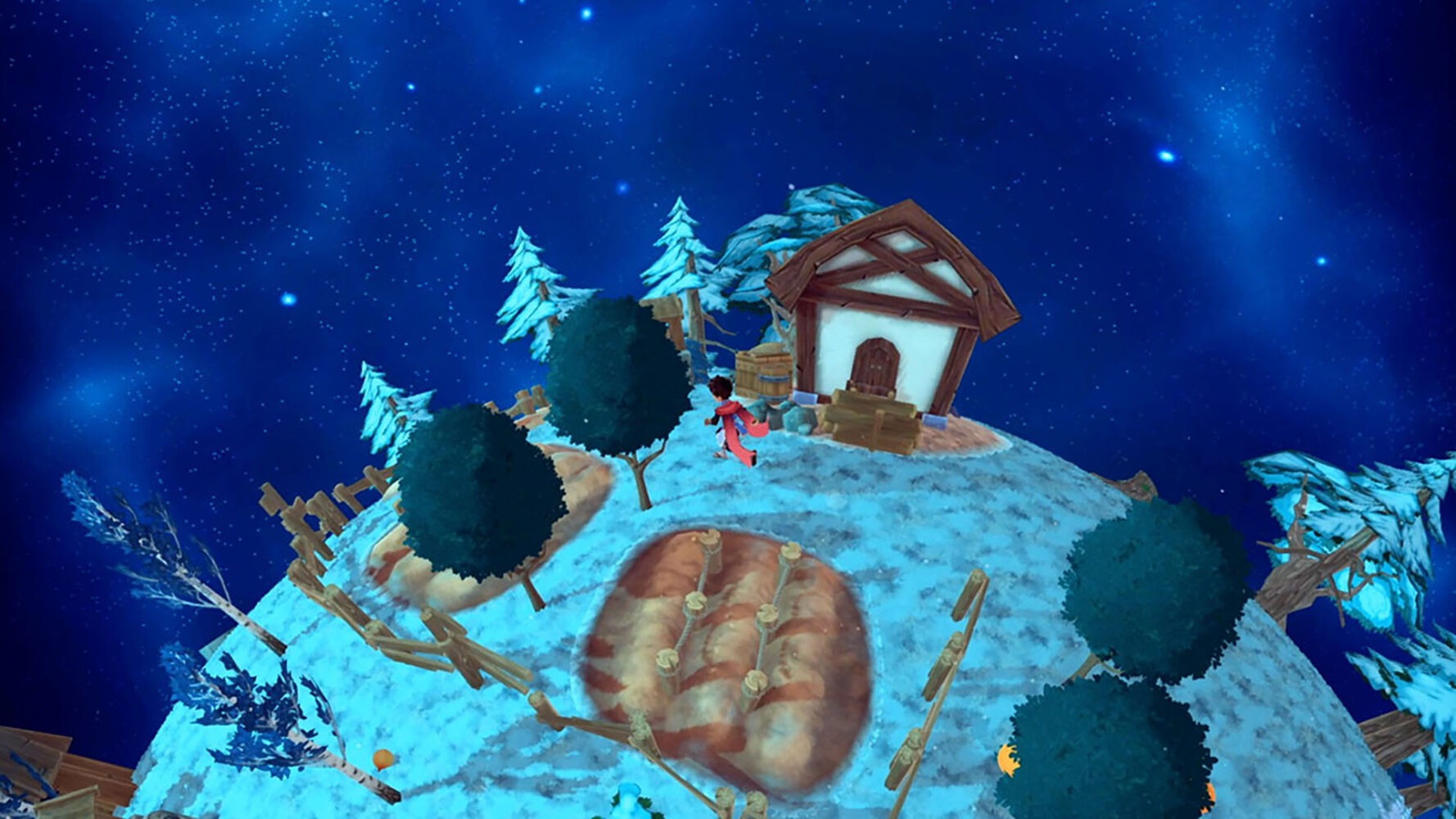
Deiland operates under its own strict schedule. And unfortunately, the game won’t tell you what that schedule is. I mentioned before that you have to wait for characters to come visit you because you can’t call them in. There are also quests when two characters arrive on Deiland at the same time. I believe that Pocket Planet has made this more likely compared to the original Deiland, but without actually cracking open the files and taking a look, I can’t be sure. But if there’s any rhyme or reason to how long it takes for someone to show up, or how long before they show up again, I don’t know it.
This isn’t the only time that Deiland forces you to wait. Many quests require you to either plant or harvest certain plants. Just about all of these are carried over from the original Deiland, which as stated, did not have seasons. Which means you can now find yourself having to wait out each season until you can finally get around to your current objectives. And while you can just send Arco to bed repeatedly to progress time, that means missing out on growing crops in the current season, which might be trouble if Arco starts to starve.
Yes, Arco can starve. Of course, being on a farm, that’s not very likely, but it can happen. Arco has three needs you have to keep on top of while playing. Health is about what you expect. Get hit with a monster or get too hungry, you start taking damage. I never actually ran out of health while playing this game, and I did play it all the way through, completing each character’s questline. Second is your stamina. This is solely tied into taking actions, like mining, or farming. Run out of stamina, and Arco can’t do any more work until you sleep. Unlike Summer in Mara, there is no stamina drain at night encouraging you to sleep every day, which means after a few upgrades, you can have Arco spend several days without sleep. And your last need is hunger, which drains over time, and you get more by eating. You know, like in real life.
Eagle-eyed readers may have caught that I mentioned upgrading Arco’s stamina just now. Deiland features a leveling system. Performing just about any action gets Arco some EXP. Get enough and you level up. But leveling up in Deiland is not quite like other games. It’s not instant. When you have enough EXP, the game will prompt you to sleep to level up. Once Arco is well rested, you choose between two of his four stats to improve. Much like the seasons, this incentives you to prioritize and think about what you need.
Deiland is a game that isn’t afraid to let go of your hand and let you experiment. And this works pretty well. Progress generally happens organically when you accidentally achieve a hidden objective that lets the plot progress. That being said, sometimes it’s hard to judge what specifically you need to do, which can lead to yet more waiting for things to happen.
And while the game is much more stable than the original release, there are some bugs that can softlock your game on rare occasions. My biggest technical nitpick is that the triggers on my controller are still inverted in menus. Contextually, this means I have to press left to tab to the right. A bug I had in the original Deiland too.
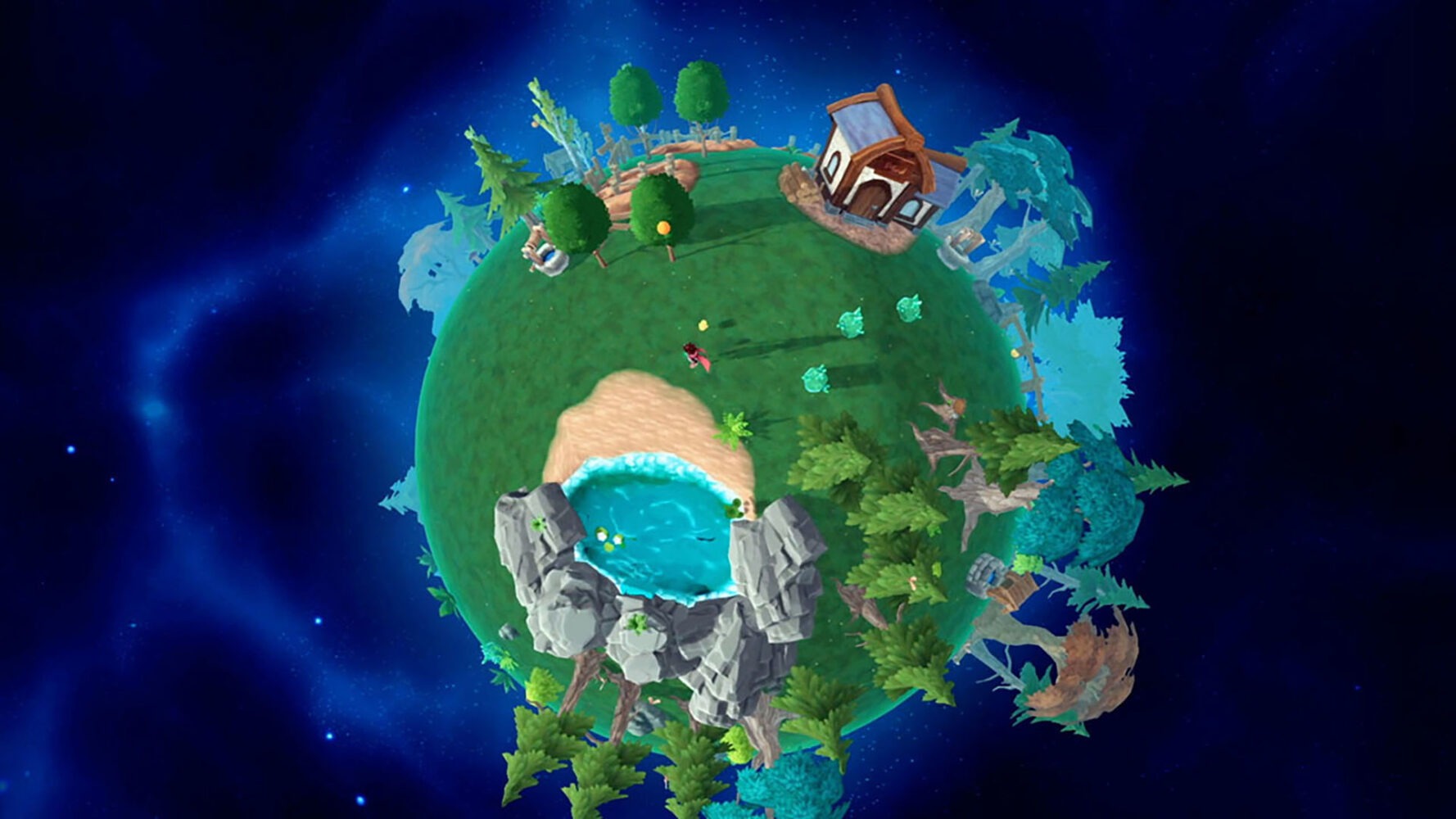
My Prince of Nothing
Chibig Studios are great at doing a lot with a little. Deiland has a very cartoony art style, with simple but detailed models. Only a handful of characters, including Arco himself, have any actual animations beyond rotating the model to constantly face you. And yet you can tell a lot about the personalities of every member of the game’s cast from their designs and spaceships. The pirate has boisterous confidence you can see in his pose compared to the more subdued posture of the old man wizard. And Deiland has some of the most interesting spaceships I’ve ever seen. There’s a UFO that opens up into a restaurant and is orbited by its stools, which land for customers to use. There’s a hot air balloon that travels through space. And they look great!
The character writing is definitely something that Chibig likes, and they do it well here. Each of Arco’s friends has a distinct personality that really shines through. The wizard is smart and knows a lot, but he isn’t as wise as you might expect, frequently falling victim to his own biases. The pirate isn’t nearly as cruel as he pretends to be. Characters will sometimes directly acknowledge these points in dialogue, but they don’t have to for you to understand everyone’s personality, which is always a good sign.
Unfortunately, the writing is also where you can see that the studio needed some more time and/or money during development of the original Deiland. There are some default dialogues you’ll see a lot. If a character doesn’t have a quest to give you, that’s the only thing they’ll tell you. If you haven’t finished your current quest, they’ll remind you that you aren’t done. Once you finish their questline, they’ll only tell you that they have nothing else to tell you. I’d have liked some more idle dialogue so you can really feel like these people are your friends and not just someone who swings by and gives you odd jobs.
There’s also a few spots where the English translation feels a bit off. Some of the dialogue is stilted and stiff. There’s also a handful of lines that don’t actually fit on their dialogue bubbles, and the last word of the sentence gets cut off.
The game’s plot also isn’t as strong as its characters thanks to a rather abrupt ending leaving several threads dangling. However, the actual telling of the story is wonderfully subtle and mysterious. You spend basically the entire game unraveling the mystery behind a masked figure hunting the location of your planet, what it means to be a Prince, the importance of Deiland’s Crystal Heart, and most importantly, your nightmares. You remember when I said this game does a lot with a little? These nightmares are probably the best example. Sometimes, when Arco sleeps, you’ll get a very short piano riff, and spiderwebs appear in the corners of the black fadeout screen while eerie text alternates between demanding you reveal your location and offering you great power if you’d just kindly reveal where you are. These nightmares are where I took the phrase ‘My Prince of Nothing,’ and it is just as unsettling as it sounds. And while that piano riff is maybe eight notes long, it’s the spookiest piece of music I’ve heard since The Muppet Christmas Carol decided that what the Ghost of Christmas Yet to Come really needed was a brass leitmotif.
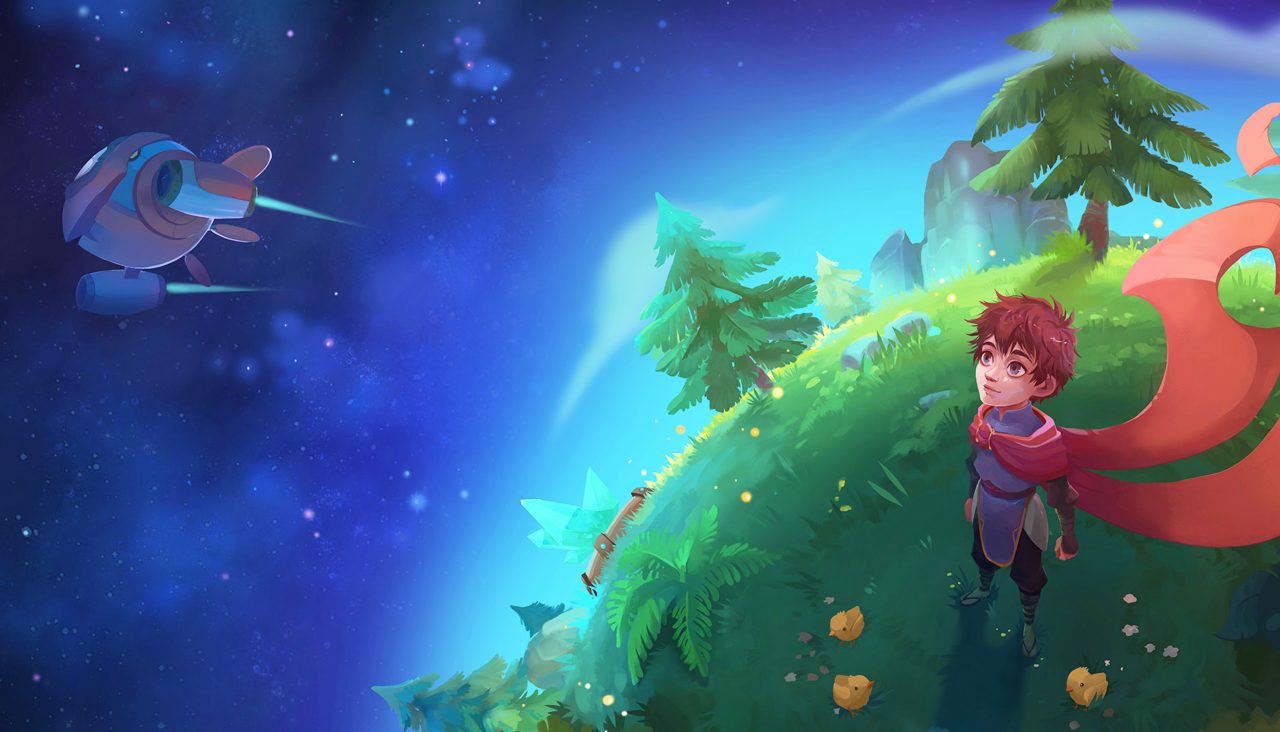
Conclusion
Deiland is a pleasant game. It has wonderful music, beautiful art, simple but rewarding gameplay, and I cannot overstate just how great it feels to learn the layout of your own tiny planet. It’s far from a perfect experience, but I had a great time and I believe that a lot of people would too.
Our Rating
Gameplay
Art & Graphics
Narrative

